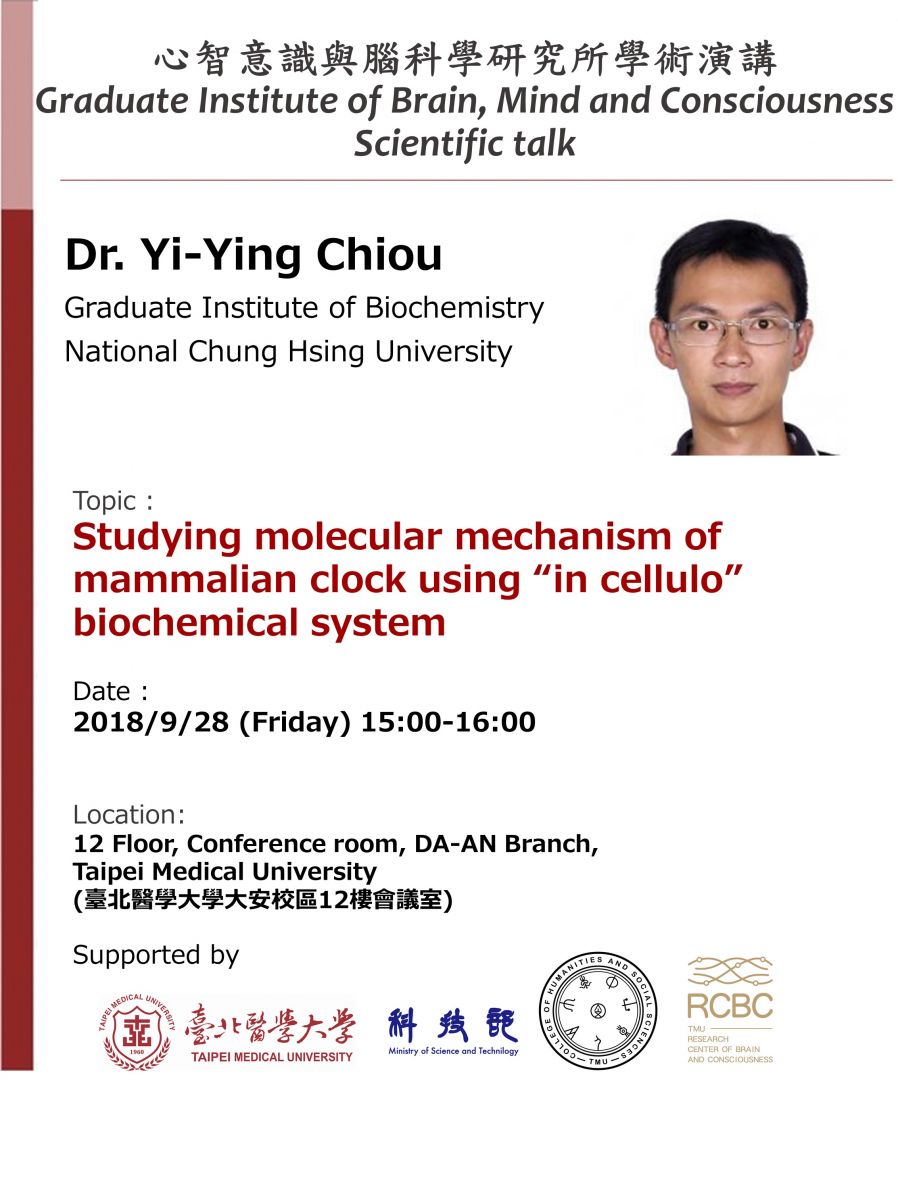Speaker: Dr. Yi-Ying Chiou (Graduate Institute of Biochemistry, National Chung Hsing University)
Date: 2018.9.28 (Fri.) 15:00-16:00
Location: 12 Floor, Conference room, DA-AN Branch, Taipei Medical University
Abstract:
Circadian rhythm is a clock system to maintain the balance of diverse physiological functions and to coordinate with the daily environmental changes. Transcription-translation feedback loop is the commonly accepted molecular mechanism of this biological clock. CLOCK and BMAL1 form a heterodimeric transcriptional activator to induce the expression of its repressor CRY1, CRY2, PER1, PER2, NR1D1 and NR1D2. However, the detailed mechanisms of these clock proteins are not clear.
We generated different cell lines lacking multiple clock proteins and studied the mechanism of CRY1 and PER2 independently. We found that 1) CRY1 and PER2 regulate CLOCK-BMAL1 through different mechanisms; 2) the activity of CRY1 is PER-independent but the activity of PER2 is CRY-dependent; 3) PER2 can activate some genes through the same mechanism. These finding modify the transcription-translation feedback loop and explain some observations which are not supported by the classical model.
Recently, we upgrade our system by generating a sextuple mutant cell line. This cell line is more closed to the in vitro system and can facilitate the study of molecular mechanism of clock. Now, we are focusing on the difference between CRY1 and CRY2 and the detailed mechanism of CRY1-mediated repression.




